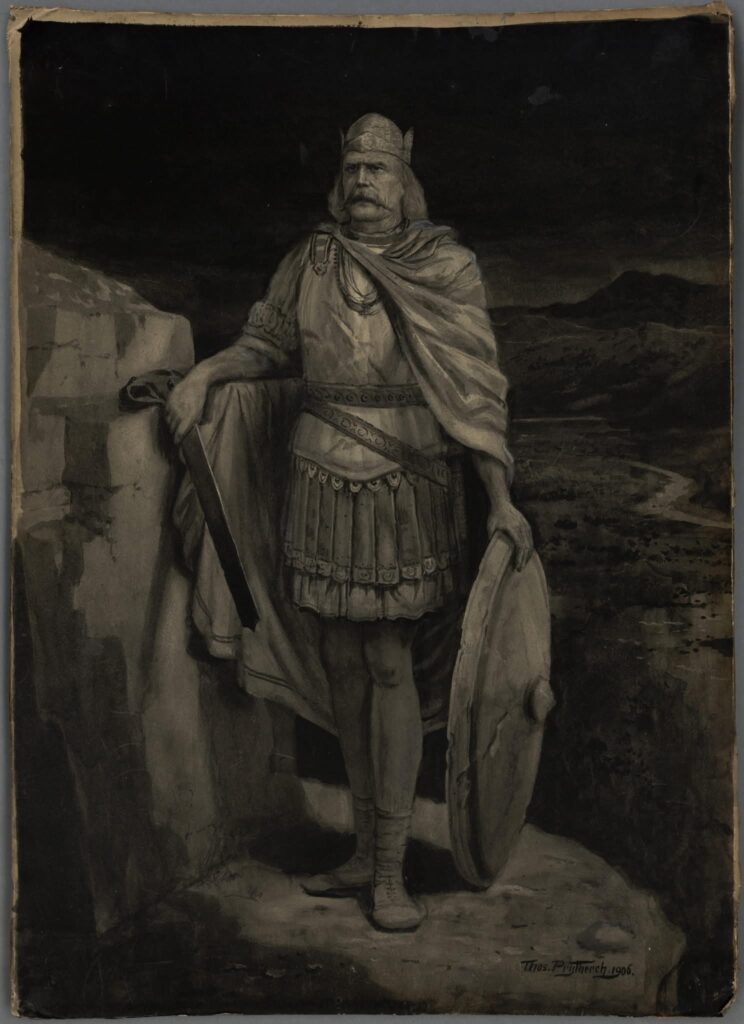Your basket is currently empty!
The Story of Caratacus
More than a millennium before the Uprising led by Owain Glyndŵr against English rule, there was the Brythonic resistance led by Caradog (more commonly known as Caratacus) against the might of imperial Rome.

Caradog was a first century AD ancient Briton and chieftain of the Catuvellauni tribe (who were most present in what is today southeast England) who, for more than a decade, led a rebellion against the invading Roman forces of Emperor Claudius.
Like the earlier Carthaginian general, Hannibal, who had once been the mighty “Enemy of Rome”, Caradog, too, was a master of guerilla warfare and this allowed him to achieve victories, avoid capture and continuously prove to be a thorn in the side of the mighty Rome.
His ultimate mistake was agreeing to the terms of a set-piece battle (a more organised conflict better suited to the militarily drilled Romans) which he would lose. A few locations for this definitive battle have been proposed, including Caer Caradoc (near Church Stretton, Shropshire) but this is uncertain.
He would flee to the perceived safety of his fellow Briton, Cartimandua – a 1st century AD Queen of the Brigantes tribe which occupied what is today northern England – but, shockingly, she would betray Caradog and hand him over to the Romans.
Caradog would stand trial in Rome. Of course, one might think that he would be sentenced to execution after such a lengthy rebellion. Instead, the Romans were impressed by not only the extent of his resistance but by a speech he gave during his trial which argued that the Roman victory was made all the more grand by the stubbornness of his resistance:
‘If the degree of my nobility and fortune had been matched by moderation in success, I would have come to this City as a friend rather than a captive, nor would you have disdained to receive with a treaty of peace one sprung from brilliant ancestors and commanding a great many nations.
But my present lot, disfiguring as it is for me, is magnificent for you. I had horses, men, arms, and wealth: what wonder if I was unwilling to lose them? If you wish to command everyone, does it really follow that everyone should accept your slavery?
If I were now being handed over as one who had surrendered immediately, neither my fortune nor your glory would have achieved brilliance. It is also true that in my case any reprisal will be followed by oblivion. On the other hand, if you preserve me safe and sound, I shall be an eternal example of your clemency.’
He was allowed to live in Rome for the rest of his days – both free and in peace. Not a bad end, I guess.

Niklas is the founder, owner, manager, editor, writer, video creator, voice over artist, and so forth, of Welsh Histories. He is passionate about the preservation of Welsh culture; the rejuvenation of the Welsh language and the promotion of Welsh history. Niklas currently resides in Pune, Maharashtra, with his beloved wife.

